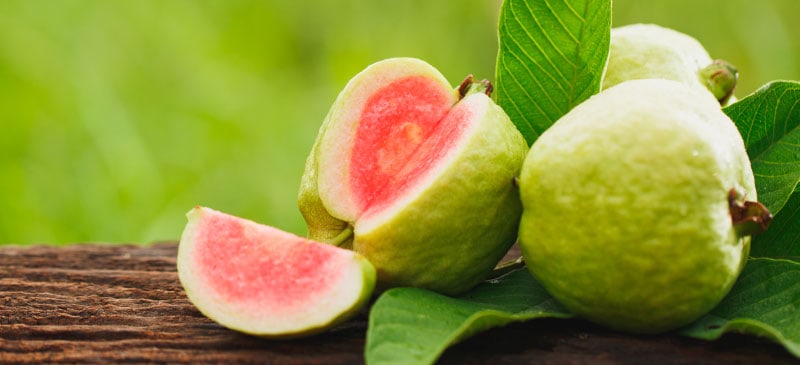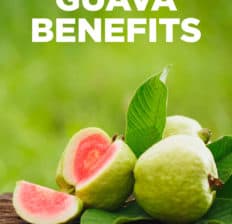This Dr. Axe content is medically reviewed or fact checked to ensure factually accurate information.
With strict editorial sourcing guidelines, we only link to academic research institutions, reputable media sites and, when research is available, medically peer-reviewed studies. Note that the numbers in parentheses (1, 2, etc.) are clickable links to these studies.
The information in our articles is NOT intended to replace a one-on-one relationship with a qualified health care professional and is not intended as medical advice.
This article is based on scientific evidence, written by experts and fact checked by our trained editorial staff. Note that the numbers in parentheses (1, 2, etc.) are clickable links to medically peer-reviewed studies.
Our team includes licensed nutritionists and dietitians, certified health education specialists, as well as certified strength and conditioning specialists, personal trainers and corrective exercise specialists. Our team aims to be not only thorough with its research, but also objective and unbiased.
The information in our articles is NOT intended to replace a one-on-one relationship with a qualified health care professional and is not intended as medical advice.
Guava: Powerful Antioxidant Food for Your Immune System
January 22, 2023

If you’ve ever visited Mexico, Central America or the Caribbean, you may have been introduced to a delicious little fruit called the guava. Native to these tropical regions, the guava is a very popular fruit that’s been associated with a number of valuable health benefits.
Guavas are known for their sweet, tangy flavor and variety of uses ranging from guava juice to guava jelly, but there’s much more to this fruit than meets the eye. In fact, it’s also been linked to a long list of health benefits, including improved heart health, enhanced immune function, decreased blood sugar levels and more.
The entire guava plant is beneficial, including the leaves, which are a source of zinc and antioxidants. The fruit is delicious and loaded with vitamin C as well.
This article will cover everything you need to know about this tasty tropical fruit and how it can impact your health.
What Is Guava?
Guava is a type of fruit that is native to tropical regions like Central and South America, Mexico and the Caribbean. Also known as Psidium guajava, which is the guava scientific name, this tropical fruit is also loaded with important nutrients.
Guavas have been dubbed the “ultimate superfood” and are widely considered one of the top antioxidant foods, supplying loads of vitamin C and lycopene in each serving.
The guava taste can range from very sweet to sour, depending on how ripe the fruit is, and there are tons of different options for how to eat guava. Aside from being a great snack when eaten raw, ingredients like guava paste can also be used in cooking and baking.
Its leaves, seeds and skin can also be eaten or used medicinally. One of the most common methods for how to use guava leaves involves steeping them in boiling water to make a soothing and delicious cup of tea.
Today, the guava is grown in warm, tropical climates all over the world. The guava tree is gregarious and tends to grow easily and freely, often overgrowing pastures and fields. In countries where it is produced, it tends to be inexpensive due to its widespread availability.
Keep in mind that guavas are not related to other fruits with similar names, such as strawberry guava or pineapple guava. Although they are often confused, all three belong to different species of plants.
Nutrition Facts
Many of the powerful health benefits of guava are attributed to its rich nutrient profile. In fact, guavas are low in calories and loaded with vitamin C, folate, copper, potassium and fiber.
100 grams of guava fruit contains the following nutrients:
- 68 calories
- 14.3 grams carbohydrates
- 2.5 grams protein
- 0.9 grams fat
- 5.4 grams fiber
- 228 milligrams vitamin C (381 percent DV)
- 624 international units vitamin A (12 percent DV)
- 49 micrograms folate (12 percent DV)
- 417 milligrams potassium (12 percent DV)
- 0.2 milligrams copper (11 percent DV)
- 0.2 milligrams manganese (8 percent DV)
- 0.1 milligrams vitamin B6 (6 percent DV)
- 1.1 milligrams niacin (5 percent DV)
- 0.5 milligrams pantothenic acid (5 percent DV)
- 22 milligrams magnesium (5 percent DV)
Health Benefits
1. Boosts the Immune System
Surprisingly, guava is one of the best vitamin C foods available.
Vitamin C is well-known for its immune-boosting benefits. It aids in the prevention of cell damage thanks to its antioxidant properties, which also helps prevent many diseases, including serious conditions like heart disease, arthritis and cancer.
A 2012 study in Pakistan concluded that fully ripe guava contained the most concentrated content of vitamin C, so it’s best to enjoy the mature fruit to get the most bang for your buck.
2. Regulates Blood Pressure
Thanks to its high potassium levels, some research shows that guava fruit could help naturally lower blood pressure and blood lipids. Potassium is crucial for keeping your heart healthy and strong and plays a key role in regulating blood pressure levels.
Plus, getting your fix of this important micronutrient may also help protect against kidney stones, stroke and bone loss.
3. Great Source of Fiber
Guava fruit is one of the best high-fiber foods available. Not only that, but guava also contains edible seeds that are packed with fiber as well.
Fiber helps support regularity by adding bulk to the stool to ease its passage out of the body. Additionally, it can even help lower blood sugar levels, keep high blood pressure in check and aid in weight loss by helping you stay fuller for longer between meals.
4. Rich in Antioxidants
In 2011, a study by Hyderabad’s National Institute of Nutrition in India investigated the antioxidant characteristics of a number of fruits, including apples, bananas, grapes and more. Interestingly enough, the study concluded that guava fruit packed the greatest antioxidant punch compared to other fruit.
Antioxidants are powerful compounds that can neutralize free radicals to protect against cell damage and chronic disease. Some research suggests that upping your intake of antioxidants could potentially aid in the prevention of common conditions like heart disease, cancer and diabetes.
5. Fights Cancer Cell Growth
Lycopene is a powerful antioxidant that is plentiful in guava fruit.
This potent carotenoid has a strong and proven reputation as a cancer fighter thanks to its ability to inhibit the growth of multiple types of cancer cells.
According to one study published in PLoS One, increased consumption of lycopene could be tied to a reduced risk of prostate cancer. Other research shows that lycopene could slow the growth and spread of lung cancer cells as well.
6. Stabilizes Blood Sugar Levels
Guava leaf has long been used in traditional folk medicine to help reverse diabetes naturally in East Asia and other areas.
Aside from being a healthy and fiber-rich snack for those with type 2 diabetes, animal models suggest that guava leaf extract could help reduce blood sugar levels while also improving glucose metabolism.
7. Helps Treat Diarrhea
Some animal models have found that guava leaf extract could be an effective treatment for infectious diarrhea. This method has been used in rural communities all over the world to treat gastrointestinal infections and is successful in part because of the plant’s astringency.
Although it’s unclear exactly how guava leaf works to prevent and treat these issues, it is thought to be due to the antimicrobial and antibacterial capabilities of the plant.
8. Reduces Inflammation
Guava leaf extract has anti-inflammatory qualities thanks to the presence of flavonoids, which are compounds that act as antioxidants to help scavenge free radicals in the body. Inflammation is at the core of most illness and disease, and including a variety of foods and supplements that relieve inflammation in your diet can help promote better health.
9. Protects Against Fatty Buildup in Arteries
Because of guava leaf’s anti-inflammatory and antioxidant properties, it may aid in the prevention of atherosclerosis, a condition characterized by the buildup of fatty plaque in the arteries.
According to an in vitro study published in the journal Food Chemistry, guava leaf tea could help block the activity of a specific enzyme responsible for the onset of atherosclerosis, which could potentially help improve heart health and protect against disease.
10. Possesses Antimicrobial Properties
Some research shows that guava leaves could possess powerful antibacterial and antifungal properties. In fact, an in vitro study in 2010 noted that guava leaf could potentially aid in the treatment of conditions such as cough, diarrhea, oral ulcers and inflamed gums.
Other studies have demonstrated that guava leaf could exert antibacterial activity against diarrhea in cases where antibiotics may not be available.
In folk medicine, guava leaves are often crushed and applied topically to treat open wounds and ulcers.
11. Supports Male Fertility
One of the most promising health benefits of guava is its effect on male fertility. For example, an animal model out of Nigeria investigated the connection between guava leaves and fertility and found that the leaves helped improve sperm count and motility compared to a control group.
Side Effects
A 2017 review in the International Journal of Molecular Sciences concluded that the fruit and leaves of guava are not associated with any significant side effects and can be consumed safely by most healthy adults.
Furthermore, despite the common belief that eating guava at night could have adverse effects on health, there is no actual evidence to support this. Therefore, you can easily enjoy any part of the fruit, seeds or leaves at any time of day.
However, you should consult with your doctor before using guava leaf extract or other guava supplements, especially if you have any underlying medical conditions or are pregnant or breastfeeding.
If you experience any adverse effects like itching, rash or hives after consuming guava, discontinue use immediately, and talk to a trusted health care professional to address any concerns.
Final Thoughts
- This fruit can be eaten whole as the seeds, skin and flesh are all edible. Each part contains essential nutrients to support better health.
- In particular, guavas are a great source of fiber, vitamin C, copper and folate as well as many other important micronutrients and antioxidants.
- The fruit and leaves have been linked to a number of guava health benefits, including better immune function, enhanced fertility and decreased cancer cell growth.
- Other potential health benefits of guava include lower blood glucose and blood pressure levels, reduced inflammation, and decreased fatty plaque buildup.
- Although the fruit and leaves can be consumed with minimal risk of adverse side effects, it’s best to talk to your doctor before using supplementation if you are pregnant, nursing or have any underlying health conditions.










